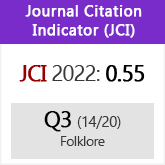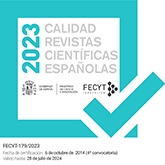Clío y la antropología. Pensando con la historia en el presente de Ávila y de Évora
DOI:
https://doi.org/10.3989/rdtp.2004.v59.i1.147Keywords:
Speculative history, Synchrony, Diachrony, Asturian Herdsmen, Avila, Evora, Lady of Sonsoles, Historical AnthropologyAbstract
After a long period dominated by functionalism and structuralism, since the 1980's anthropology has benefited from its closeness to history, comparable with the increasing interest by historians in anthropology. The author has lived through this transformation, which has taken place at the time of her own development as an anthropologist and can be perceived in her publications. Her research on the symbolic construction of historyladen cities such as Avila and Evora facilitated this development. However, it is not a matter of easily complementing one discipline and approach with the other, as though each would have found at last its better half. Although anthropologists must study history, the classical approach of history —the analysis of documents from the past— will not be enough for them. Anthropologists must study history as source and organization of meanings in the present. Should he look closely, the anthropologist of the present will realize that his informants are not only heirs to history, but think with it too.
Downloads
Download data is not yet available.
Downloads
Published
2004-06-30
How to Cite
Cátedra, M. (2004). Clío y la antropología. Pensando con la historia en el presente de Ávila y de Évora. Disparidades. Revista De Antropología, 59(1), 203–231. https://doi.org/10.3989/rdtp.2004.v59.i1.147
Issue
Section
Articles
License
Copyright (c) 2004 Consejo Superior de Investigaciones Científicas (CSIC)

This work is licensed under a Creative Commons Attribution 4.0 International License.
© CSIC. Manuscripts published in both the printed and online versions of this Journal are the property of Consejo Superior de Investigaciones Científicas, and quoting this source is a requirement for any partial or full reproduction.All contents of this electronic edition, except where otherwise noted, are distributed under a “Creative Commons Attribution 4.0 International” (CC BY 4.0) License. You may read here the basic information and the legal text of the license. The indication of the CC BY 4.0 License must be expressly stated in this way when necessary.
Self-archiving in repositories, personal webpages or similar, of any version other than the published by the Editor, is not allowed.















